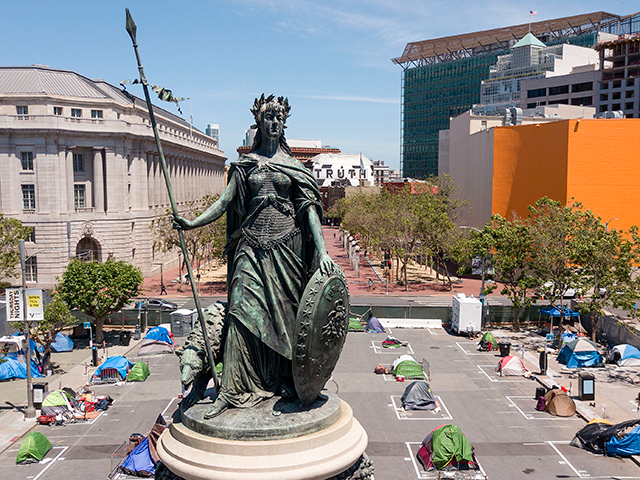San Francisco Mayor London Breed’s plan to curtail the homeless epidemic in the city includes giving people living on the streets money to rent apartments in neighborhoods across the city.
Described as the largest expansion of permanent supportive housing in two decades, part of the plan includes a program to hand out 1,100 vouchers to homeless individuals to be used to cover rent.
The San Francisco Chronicle reported on Breed’s Homelessness Recovery Plan, which she first announced in July:
In addition to the vouchers, the plan includes constructing 1,500 new units of supportive housing by 2025. But building anything in San Francisco is a challenge, and it can take years — and about $700,000 — to create a single unit. That’s why the mayor’s team is also focusing on placing people in existing apartments, and bringing the services to them.
So far, the city has secured $6.5 million from a 2018 business tax for about 340 out of a total goal of 1,100 vouchers. The nonprofit Tipping Point Community created an $11 million fund last summer to launch the program. The rest will need to be funded through the upcoming budget process — and every year thereafter — which will cost about $41 million annually.
Under the voucher program, people must pay 30 percent of their income in rent and the city makes up the rest, up to $1,800. Each person’s case manager will check on them at least once a month, or as needed. That’s different from the current model where people live in buildings dedicated to people who have physical or mental disabilities and also have access to on-site staff.
But one woman interviewed for the Chronicle article who lived on the streets and was addicted to drugs doubts vouchers will have an impact on the homeless population.
“You can’t just put people from homelessness to housing,” said Juthaporn Chaloeicheep, who has lived in supportive housing herself since 2014. “They have mental health issues, they have drug addiction issues.”
“You’re never going to get rid of the homeless problem in San Francisco if you think building housing is it,” Chaloeicheep said.
Chaloeicheep also said many people she knows need very intensive services to deal with their issues, be it mental health or drug addiction.
While people in supportive housing do have access to such services, they are not located on site or available 24/7.
The Chronicle reported in addition to homeless people being put into neighborhoods through the voucher program, some 2,000 homeless people were put in hotels around the city during the coronavirus pandemic.
Follow Penny Starr on Twitter or send news tips to pstarr@breitbart.com

COMMENTS
Please let us know if you're having issues with commenting.